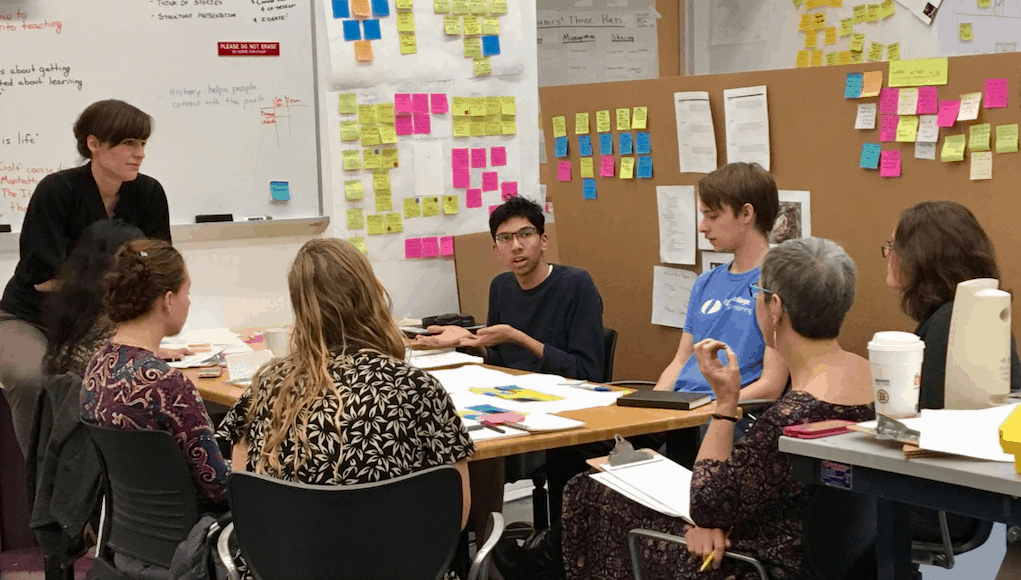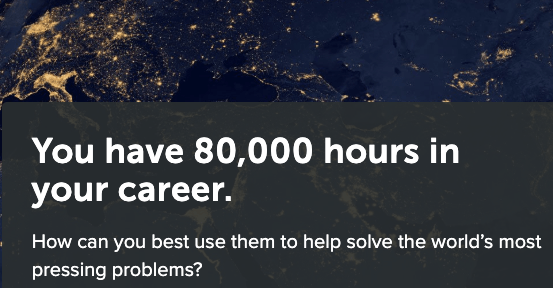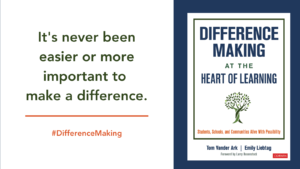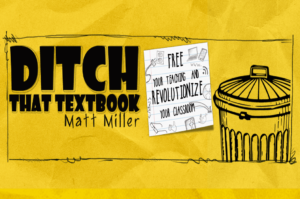Where Can You Make the Biggest Difference?

The world’s great religions promote contributing to the common good (as noted in a recent post). They teach and celebrate reconciliation—making all things new—and promote service inspired by gratitude.
Some who are unsympathetic to ancient wisdom might argue we’re in a post-religious world where civic virtue shouldn’t rely on “nonsense upon stilts” (what Jeremy Bentham, the father of utilitarianism, called divine rights).
Building on Bentham’s pragmatics, effective altruism came of age in the last decade with a nearly simultaneous rise among analytic philosophers at Oxford and Silicon Valley entrepreneurs.
Popularized by Peter Singer’s The Most Good You Can Do, and Will MacAskill’s Doing Good Better, effective altruism suggests that we should be thinking rigorously, comparatively, and collectively about how can we use our resources to help others the most.
The Centre for Effective Altruism said this new field “uses high-quality evidence and careful reasoning to work out how to help others as much as possible.”
How to Spend Your 80,000 Hours?
Back in 2011, Will MacAskill and his colleague Benjamin Todd were trying to figure out what to do. They developed a lecture, then a part-time project, then a full-blown organization dedicated to how to best use a career to make a difference. They figured you have about 80,000 working hours in your career (40 years x 50 weeks x 40 hours), so they called the project 80,000 Hours.
They developed a guidance framework for those sharing their utilitarian bent and seeking to make a difference. It suggests working on big problems that are highly neglected but solvable.
When it comes to helping people find careers that more effectively ‘make a difference,’ ‘do good,’ or ‘have a positive impact’ on a large scale, the 80,000 Hours crew is specific but reflective about a set of (abbreviated) postulates:
Impartial concern for welfare. When it comes to making a difference, we aim to be impartial in the sense that we give equal weight to everyone’s interests. We strive to avoid privileging the interests of others based on arbitrary factors such as their race, gender, or nationality, as well as where or even when they live. In addition, we think that the interests of many non-human animals should be given significant weight, although we’re unsure of the exact amount. Because we aim to avoid privileging anyone’s interests based on when they were born, we always consider the impact our actions have on future generations, not just their effects on those alive today.
Effective altruism. It sounds obvious that if you can help two people rather than one, and your cost is the same, it’s better to help the two people. However, when applied to the world today, this obvious-sounding idea leads to surprising conclusions.
This means the top priority in doing good is to get the big picture right, and not to sweat the details. If you can do better on the big decisions, then you can have hundreds of times more impact than what’s typical, which is an amazing feat.
Expected value and counterfactuals. We all make decisions about risk and uncertainty in our daily lives; but when trying to do good, we face even greater uncertainty about the ultimate effects of our actions—especially if we consider all their long-term effects. The best we can do is to consider all of the good and bad things that could result from our actions, and weigh them by the probability that they will actually happen.
Longtermism. If we care about all of our actions’ consequences, then what’s most important about them from an impartial perspective is their potential effects on future generations.
Moral uncertainty and moderation. We think that the most important thing for us to focus on from an impartial perspective is increasing long-term welfare. However, we aren’t sure that this is the only thing that matters morally. It’s also extremely difficult to know all the relevant effects of our actions, and grand projects to advance abstract ethical aims often go badly.

What Could You Work On?
Want to make a big difference? The most important factor, according to 80,000 Hours is to pick the right issue—one where additional resources will have the greatest returns because they’re important in the long term, relatively neglected, and solvable.
With this informed view of the opportunity set, you can test personal fit: where do you have the highest chances of excelling? Does it fit with the rest of your life and risk tolerance? Will it let you contribute to a pressing problem right away?
The 65 episodes of the 80,000 Hours Podcast provide long-form advice on how you can use your career to solve the world’s most pressing problems. Many of them will be useful immersions for young people considering opportunities for making a difference.
Calling or Calculation?
Maybe you don’t buy the career calculus effused by effective altruists. Even admirers offer several critiques of effective altruism: it understates the importance of being in and serving a community, it undervalues political action, it disregards the importance of emotions, and it promotes ‘lone wolf’ and ‘savior’ solutions.
Despite these drawbacks, applying pragmatic realism to your career choices and philanthropy have some obvious benefits. Effective altruism asks you to lift your chin, look around, think long term and do your best to improve human welfare.
With all the talk about finding and following your passion, effective altruism suggests that in addition to exploring your strengths and interests, it’s useful to ask the complementary question: where can I make the biggest difference?
For more, see:
- Hands Down Voices Up: An Invitation to Practice Good
- Learning to Make a Difference at One Stone
- Follow Your Passion: Crazy or Genius?
Stay in-the-know with innovations in learning by signing up for the weekly Smart Update.
This blog was originally published on Forbes.








0 Comments
Leave a Comment
Your email address will not be published. All fields are required.